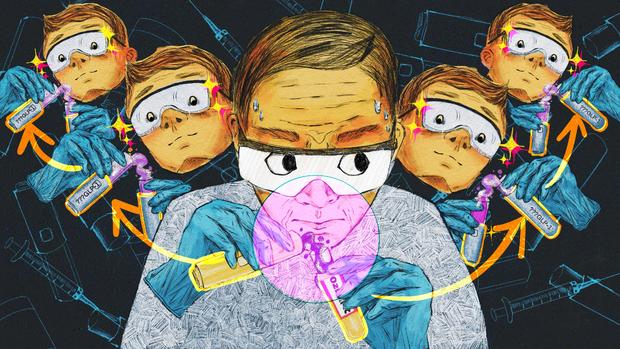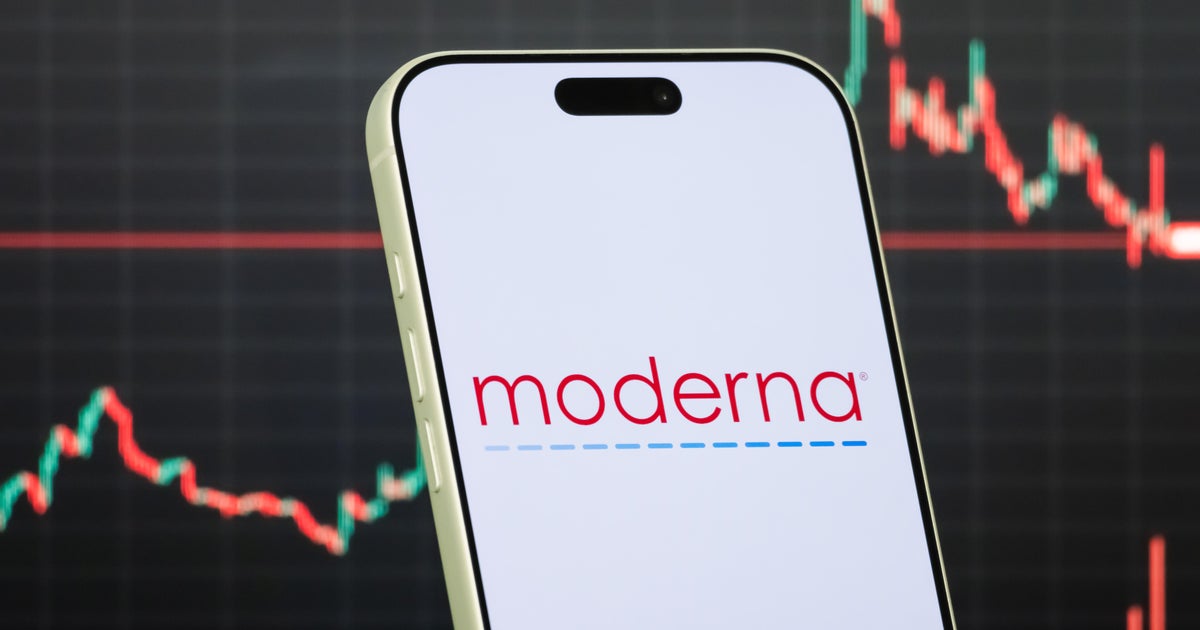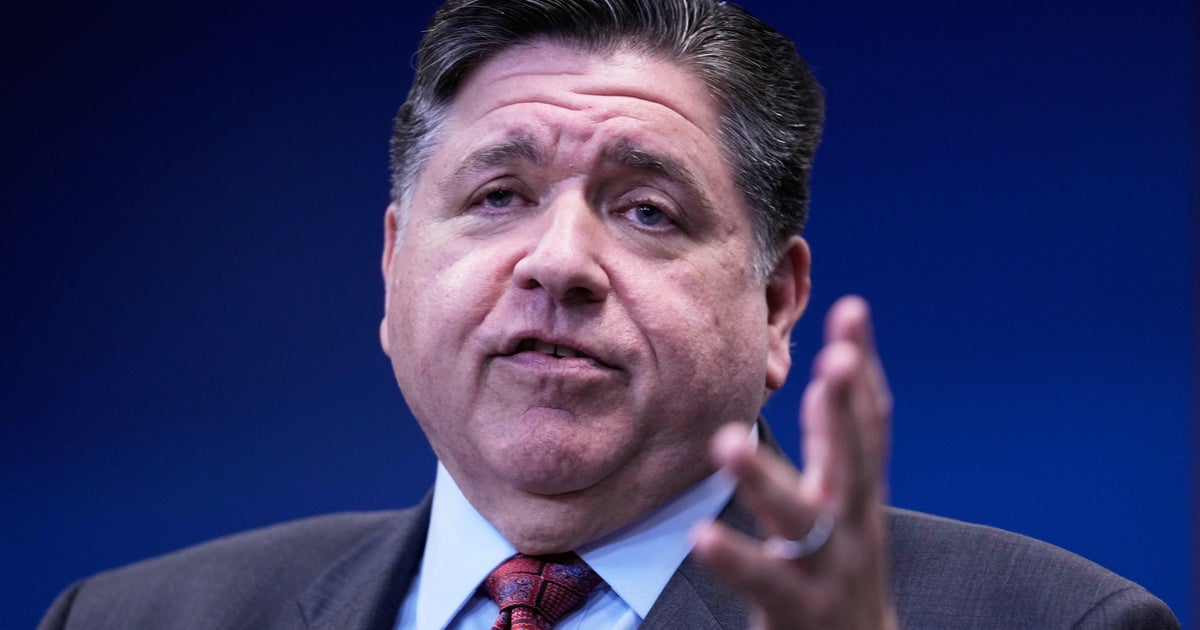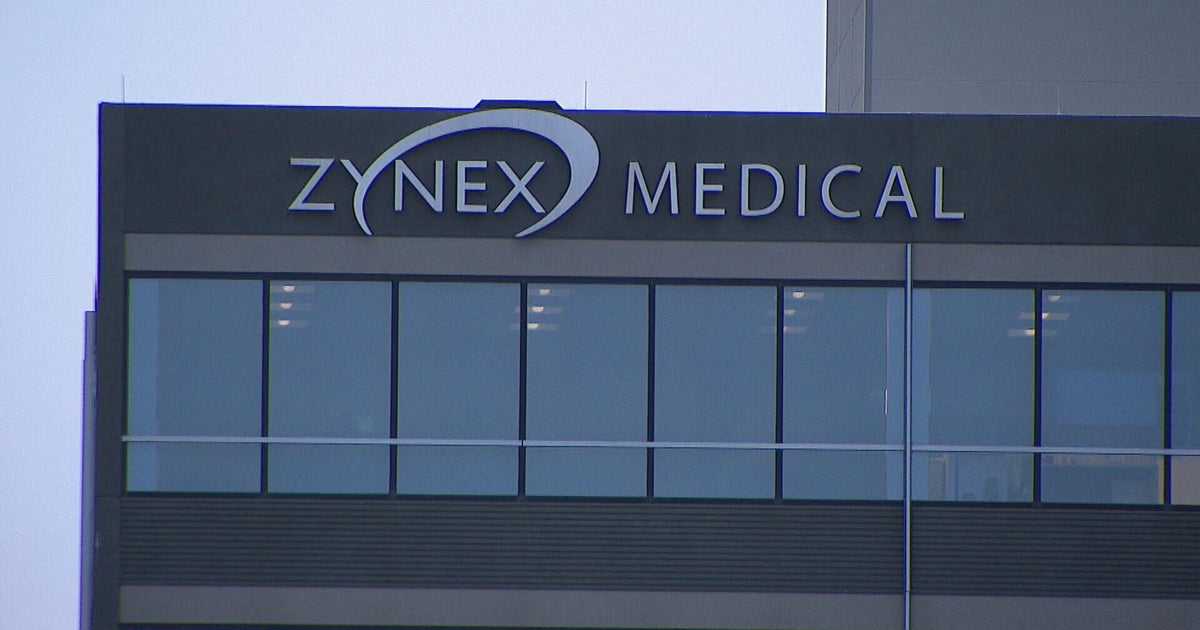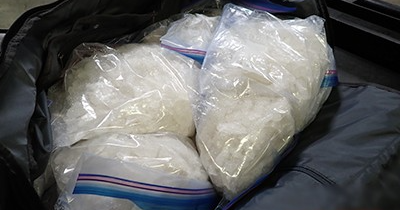Why millions are trying alternatives to Big Pharma's weight loss drugs
Pharmacist Mark Mikhael has lost 50 pounds over the past 12 months. He no longer has diabetes and finds himself "at my ideal body weight," with his cholesterol below 200 for the first time in 20 years. "I feel fantastic," he said.
Like millions of others, Mikhael credits the new class of weight loss drugs. But he isn't using brand-name Wegovy or Zepbound. Mikhael, CEO of Orlando, Florida-based Olympia Pharmaceuticals, has been getting by with his own supply: injecting himself with copies of the drugs formulated by his company.
He's far from alone. Mikhael and other industry officials estimate that several large compounding pharmacies like his are provisioning up to 2 million American patients with regular doses of semaglutide, the scientific name for Novo Nordisk's Wegovy, Ozempic and Rybelsus formulations, or tirzepatide, the active ingredient in Eli Lilly's Zepbound and Mounjaro.
The drug-making behemoths fiercely oppose that compounding business. Novo Nordisk and Lilly lump the compounders together with internet cowboys and unregulated medical spas peddling bogus semaglutide, and have high-powered legal teams trying to stop them. Novo Nordisk has filed at least 21 lawsuits nationwide against companies making purported copies of its drugs, said Brianna Kelley, a spokesperson for the company, and urges doctors to avoid them. The FDA, too, has cautioned about the potential danger of the compounds, and leading obesity medicine groups starkly warn patients against their use.
But this isn't an illegal black market, though it has shades of gray.
The FDA allows and even encourages compounding pharmacies to produce and sell copycats when a drug is in short supply, and the wildly popular GLP-1 drugs have enduring shortages — first reported in March 2022 for semaglutide and in December 2022 for tirzepatide. The drugs have registered unprecedented success in weight loss. They are also showing promise against heart, kidney and liver diseases and are being tested against conditions as diverse as Alzheimer's disease and drug addiction.
In recent years, the U.S. health care system has come to depend on compounding pharmacies, many of which are run as nonprofits, to plug supply holes of crucial drugs like cancer medicines cisplatin, methotrexate and 5-fluorouracil.
Most compounded drugs are old, cheap generics. Semaglutide and tirzepatide, on the other hand, are under patent and earn Novo Nordisk and Lilly billions of dollars a year. Sales of the diabetes and weight loss drugs this year made Novo Nordisk Europe's most valuable company and Lilly the world's biggest pharmaceutical company.
While the companies can't keep up with demand, they heatedly dispute the right of compounders to make and sell copies. Lilly spokesperson Kristiane Silva Bello said her company was "deeply concerned" about "serious health risks" from compounded drugs that "should not be on the market."
Yet marketed they are. Even Hims & Hers Health — the telemedicine prescriber that got its start with erectile dysfunction drugs — is now peddling compounded semaglutide. It ran ads for the drugs during NBA playoff games. (According to a Hunterbrook Media report, Hims & Hers' semaglutide supplier has faced legal scrutiny.)
The compounded forms are significantly cheaper than the branded drugs. Patients pay about $100 to $450 a month, compared with list prices of roughly $1,000 to $1,400 for Lilly and Novo Nordisk products.
Five compounders and distributors interviewed for this article said they conduct due diligence on every lot of semaglutide or tirzepatide they buy or produce, upholding standards of purity, sterility and consistency similar to those practiced in the commercial drug industry. Compounders operate under strict federal and state standards, they noted.
However, the raw materials used in the compounded forms may differ from those produced for Novo Nordisk and Lilly, said GLP-1 co-inventor Jens Juul Holst, of the University of Copenhagen, adding that care must be taken in drug production lest it cause potentially harmful immune reactions.
To date, according to FDA spokespeople, reports of side effects from taking compounded versions haven't raised major alarms. But everyone with knowledge of the industry, including the compounders themselves, worry that a single batch of a poorly made drug could kill or maim people and destroy confidence in their business.
"I liken the compounding industry to the airline industry," Mikhael said. "When you have an airline crash, it hurts everybody."
Warnings from the past
The industry endured just such a catastrophe in 2012, when the New England Compounding Center released a contaminated injectable steroid that killed at least 64 people and harmed hundreds more.
In response, Congress and the FDA had strengthened oversight. Mikhael's company is an outsourcing facility, or 503B compounding pharmacy — so-named for a section of the 2013 law that set new requirements for drug compounders. The companies are licensed to make slightly different versions of FDA-approved drugs in response to shortages or a patient's special needs.
The law created two classes of compounding pharmacies: The FDA regulates the larger 503B compounders with standards like commercial drug companies, while 503A pharmacies make smaller lots of drugs and are largely overseen by state boards of pharmacy.
The 503A facilities also are producing compounded semaglutide and tirzepatide for hundreds of thousands of patients. Like the 503Bs, these operations take the active ingredient, produced as a powder in FDA-registered factories, mostly in China, then reconstitute it with sterile water and an antimicrobial in small glass vials.
Together, the compounding pharmacies may account for up to 30% of the semaglutide sold in the U.S., Mikhael said, although he cautions that is a "wild ballpark figure" since no one, including the FDA, is tracking sales in the industry.
The compounders say the companies should increase production if they're worried about competition. Like the dozens of other drugs they produce for hospitals and medical practices, the compounders say, the two diet drugs are essential products.
"If you don't want a 503B facility to make a copy, it's pretty simple: Don't go short," said Lee Rosebush, chair of a trade association for 503B pharmacies. "FDA created this system because these are necessary drugs."
Novo Nordisk hasn't specified why it can't keep up with demand, but the bottleneck apparently lies in the company's inability to fill and sterilize enough of its special drug auto-injectors, said Evan Seigerman, a managing director at BMO Capital Markets.
The company announced June 24 that it was investing $4.1 billion in new production lines at its Clayton, North Carolina, site. The FDA last year issued a warning over procedural violations at the site and separate cautions at an Indiana facility that Novo Nordisk took over recently.
Compounding for Dummies
At least 28 companies mostly in China, are registered with the FDA to produce or distribute semaglutide. At least half the companies have entered the market in the past 12 months, driving the raw material's price down by 35%, according to Scott Welch, who runs a 503A pharmacy in Arlington, Virginia.
Compounders can buy powdered semaglutide from some U.S. distributors for less than $4,000 a gram, said Matthew Johnson, president and CEO of distributor Pharma Source Direct. That comes out to as little as $10 per weekly 2.5-microgram dose.
While Ozempic or Wegovy patients use a Novo Nordisk device to inject the drug, patients using compounded products draw them from a vial with a small needle, like the device diabetics use for insulin.
Some medical practices provide the compounded drug to patients as part of a weight loss package, with markups. Last July, Tabitha Ries, a single mother of six who works as a home health care aide in Garfield, Washington, found an online clinic that charged her $1,000 for three months of semaglutide along with counseling. She has lost 35 pounds.
She gets the drug from Mindful Weight Loss, a mostly telehealth-based operation led by physician Vivek Gupta of Manhattan Beach, California. Gupta said he's prescribed the weight loss drugs to 1,500 patients, with about 60% using compounded versions from a 503A pharmacy.
He hasn't seen any essential difference in patients using the branded and compounded forms, although "some people say the compounding is a little less effective," Gupta said.
There's some risk in using the non-FDA-approved product, he acknowledged, and he requires patients to sign an informed consent waiver.
"Nothing in life is without risk, but I would also argue that the status quo is not safe for people who need the medicine and can't get it," he said. "They're constantly triggered by all this food that's causing their weight to go up and their sugar to go high, increasing their insulin resistance and affecting their limbs and eyes."
Compounding semaglutide is a helpful sideline for pharmacists like him, Welch said, especially given the pinch on drug sale revenue that has led many independents to close in recent years. He figures he earns 95% of his revenue from compounding drugs, rather than traditional prescriptions.
It's important to distinguish compounded semaglutide from unregulated powders sold as "generic Ozempic" and the like, which may be contaminated or counterfeit, said FDA spokesperson Amanda Hils. But since compounded forms of the drug are not FDA-approved, those who make, prescribe or use them also should have "an increased level of responsibility or awareness," she said.
Corporate battles
Novo Nordisk and Lilly, in lawsuits each company has filed against competitors, say their own testing has found bacteria and other impurities in products made by compounding pharmacies. The companies also report patent infringement, but compounders, pointing to the FDA loophole for drugs in shortage, appear to have defeated that argument for now.
When the FDA removes the drugs from the shortage list, 503B compounders must immediately stop selling them. Smaller compounders may be able to produce their products for a reduced number of patients, said Scott Brunner, CEO of the Alliance for Pharmacy Compounding, which represents 503A compounders.
The evaporation of the compounded drug supply could come as a shock to patients.
"I dread it," said David Wertheimer, an internist in Franklin Lakes, New Jersey, who prescribes compounded semaglutide to some patients. "People are not going to be able to plunk down a grand every month. A lot of people will go off the drug, and that's a shame."
KFF Health News is a national newsroom that produces in-depth journalism about health issues and is one of the core operating programs at KFF — the independent source for health policy research, polling and journalism.
